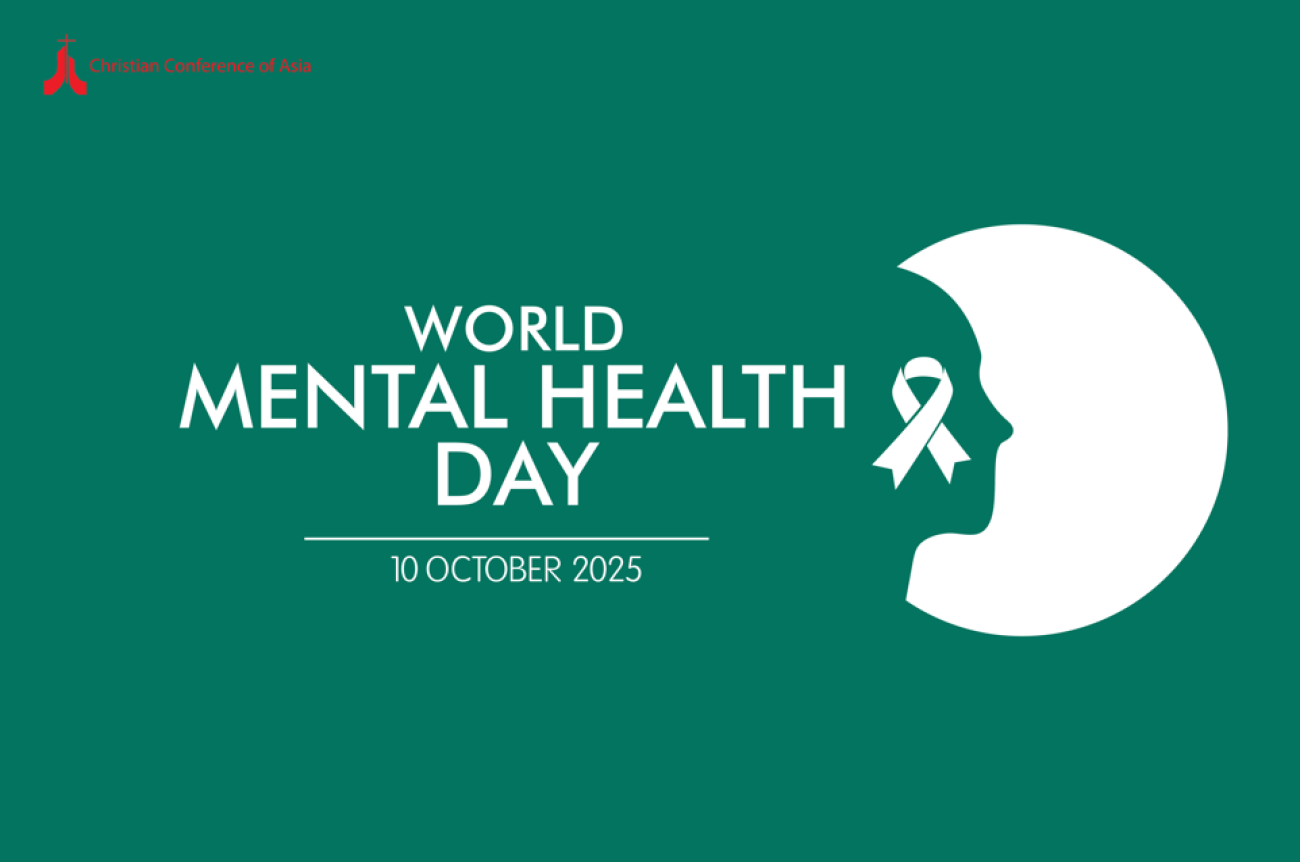CCA urges churches to integrate mental health support into humanitarian response on World Mental Health Day 2025

Chiang Mai, Thailand: On World Mental Health Day 2025, the Christian Conference of Asia (CCA) called for the integration of mental health and psychosocial support into churches’ diakonal ministries and humanitarian response efforts.
The theme of this year’s World Mental Health Day, “Mental Health in Humanitarian Emergencies,” underscores the urgent need to prioritise mental health in contexts of crisis.
In a statement released on 10 October 2025, CCA General Secretary Dr Mathews George Chunakara stressed that care for all who face upheaval and crisis due to mental health challenges is a vital act of solidarity and recognition of human dignity.
“Amid crises, whether caused by personal struggles, natural disasters, conflicts, or public health emergencies, mental health support is not optional but essential for survival, recovery, and the restoration of human dignity,” stated Dr Chunakara.
Highlighting the vulnerability of the region, the CCA General Secretary observed that Asia and the Pacific is the world’s most disaster-prone region, where climate-related events displace one person every two seconds, affecting approximately 142 million people annually. He noted that “the scale of disruption continues to grow, deepening psychological distress and social vulnerability. Ethnic and religious conflicts across the region further exacerbate displacement, insecurity, and trauma for millions of people.”
Dr Chunakara emphasised the moral and pastoral responsibility of the Church and faith-based organisations in responding to these challenges. “Churches can serve as sanctuaries of hope, offering spiritual and emotional care alongside other forms of aid. Mental health must be recognised as integral to our Christian mission of health and healing, justice, and the preservation of human dignity,” he said.
As people continue to live under highly vulnerable conditions, CCA called on churches, governments, humanitarian agencies, and faith communities to integrate mental health and psychosocial support into all stages of humanitarian response.
The full text of the CCA General Secretary's statement can be found here:










